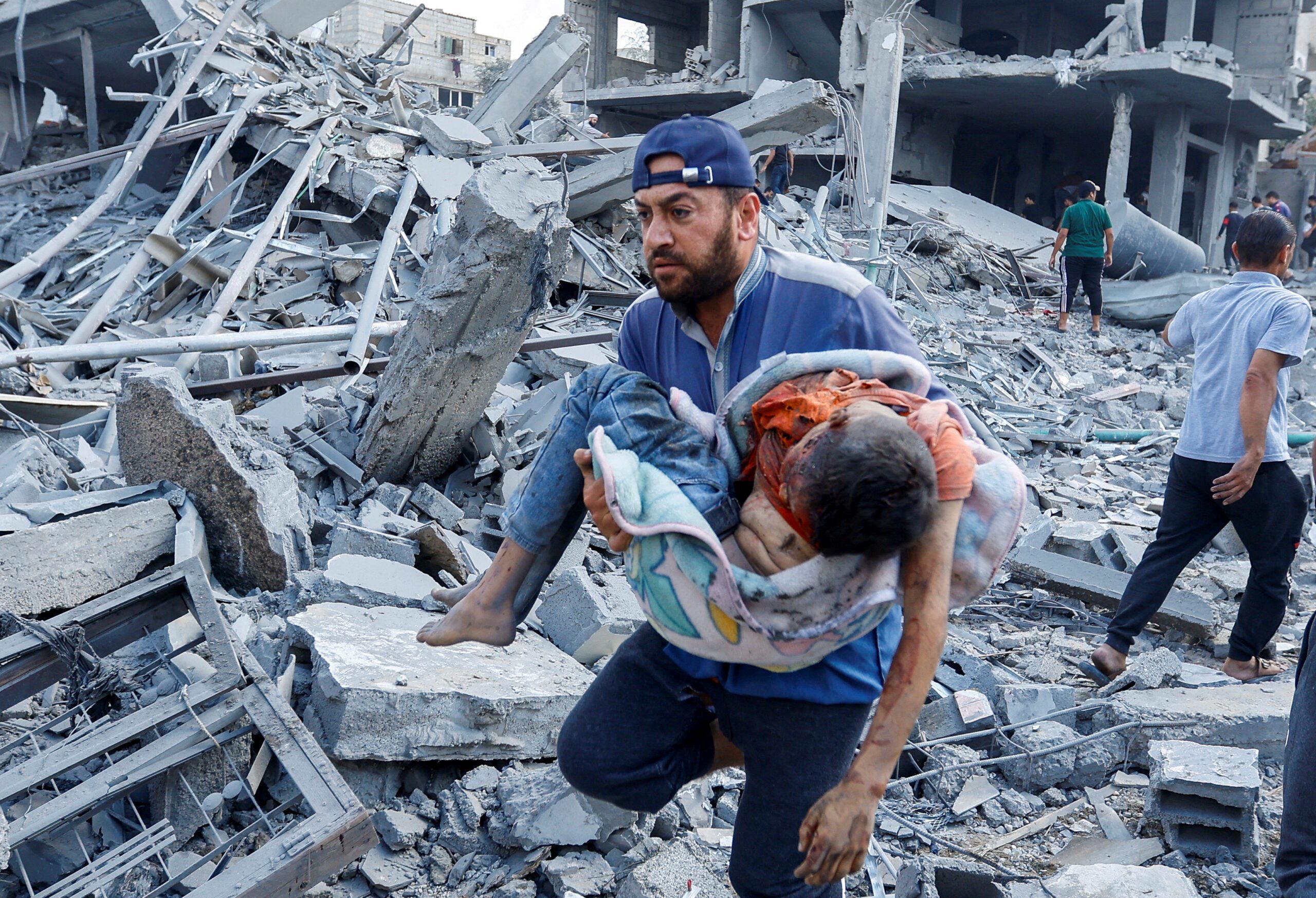Last week, the Republic of South Africa submitted an application at the International Court of Justice against Israel for breaching the provisions of the Genocide Convention, claiming that Israeli actions are “genocidal in character because they are intended to bring about the destruction of a substantial part of the Palestinian national, racial and ethnical group.”
The detailed report cites that although South Africa is aware of the particular weight of responsibility of initiating these proceedings, it is also aware of its own obligations as a State party to the Genocide Convention to prevent genocide.
South African Minister of Social Development, Lindiwe Zulu, explained in an interview with Al Jazeera that given the escalations and the numbers of people being killed, they “believe that this is the right time for us both as the African National Congress and our government to step up to the next level in finding a solution”.
The Report’s Content
The report details a great litany of atrocities committed by Israeli forces. It first introduces facts and figures related to the number of Palestinians killed and damages incurred by citizens, especially children.
It goes back in history beyond the last few months of fighting and highlights a history of Israeli violations and the “excessive use of force” at the expense of “life and property in Palestine” found in previous fact-finding missions and detailed in reports dating as back as 2008, 2009, 2015 and other years.
The report then transitions to recent events since October 2023, and links Israeli violations in the West Bank to its intentions in Gaza, citing plans of driving out vulnerable Palestinian communities from their lands and Israel’s failure to prevent or punish settlers for incitement and violence against Palestinians and their properties.
Afterwards, the report transitions to the section titled “Genocidal Acts Committed Against the Palestinian People”, focused on the recent events and how Israeli action should be considered as genocidal.
It provides detailed accounts of Israel’s killing of Palestinian civilians and destruction of residential areas, the use of unguided bombs, the targeting of journalists, teachers and other professionals, the mass displacement of Palestinians in Gaza, the deprivation of access to food, water, shelter, hygiene and medical assistance, and the general destruction of Palestinian life in Gaza including imposing “measures intended to prevent Palestinian births.”
The report then transitions to citing expressions of genocidal intent by Israeli state officials, a necessary component of the application given the centrality of the element of “intent” in the Genocide Convention.
The section lists a number of statements by Israeli members of government and army officials, which should be characterized as genocidal, such as the Minister of Agriculture’s statement that “we are now actually rolling out the Gaza Nakba”, the Israeli Army Colonel’s speech which includes “they will not be able to live here” in reference to one of the areas in Gaza, Israeli army soldiers chanting “may Gaza be erased,” and many others.
Following that, the report details previous recognitions of Israel’s genocidal intent against Palestinians, where several UN personnel pointed to a “genocide in the making” and the dehumanization of Palestinian lives, among other deplorations of Israeli action and rising levels of racism and hate speech.
Finally, the reports ends with the claims of South Africa, which state that Israel has violated the Geneva Convention at the level of:
– (a) failing to prevent genocide in violation of Article I;
– (b) committing genocide in violation of Article III (a);
– (c) conspiring to commit genocide in violation of Article III (b);
– (d) direct and public incitement to commit genocide in violation of Article III (c);
– (e) attempting to commit genocide in violation of Article III (d);
– (f) complicity in genocide in violation of Article III (e);
– (g) failing to punish genocide, conspiracy to commit genocide, direct and public incitement to genocide, attempted genocide and complicity in genocide, in violation of Articles I, III, IV and VI;
– (h) failing to enact the necessary legislation to give effect to the provisions of the Genocide Convention and to provide effective penalties for persons guilty of genocide, conspiracy to commit genocide, incitement to genocide, attempted genocide, and complicity in genocide, in violation of Article V; and
– (i) failing to allow and/or directly or indirectly impeding the investigation by competent international bodies or fact-finding missions of genocidal acts committed against Palestinians in Gaza, including those Palestinians removed by Israeli State agents or forces to Israel, as a necessary and corollary obligation pursuant to Articles I, III, IV, V and VI.
It follows the claims with two sections on the type of relief that South Africa seeks and a request for provisional measures to be implemented.
Reactions
The application was welcomed by people and organizations around the world as a solid display of humanity and a concrete step to punish Israel for its violence against the Palestinian people.
What adds to the significance of South Africa’s application lies in the country’s own past struggle against apartheid and ethnic discrimination, which many have considered a case of “learning from history, instead of repeating it” in reference to the way that many European states have behaved during the last period.


